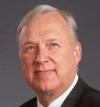Ethics Influencing Science?At this point we should see that ethical factors are beginning to influence the science. This variant on the second scenario appears to have a slight ethical advantage. The removal of the DNA nucleus from the donated oocyte might be considered the destruction of a potential human life; and the insertion of a DNA nucleus appears to be an asexual creation of a human embryo. We suddenly find ourselves in the middle of the abortion debate. By beginning with hES cells, scientists think this debate could be avoided. However, the use of hES cells does not avoid the embryo problem completely. The Thomson method relies on destroyed blastocysts as the source for hES cells; and the Gearhart method relies on aborted fetuses. Much needs to be cleared up here. The primary task, as I see it, will be for scientists and ethicists to agree on the relevant vocabulary. In particular, the distinction between totipotent and pluripotent stem cells must be stipulated with sufficient clarityto permit ethical analysis. Right now it appears that only one attribute distinguishes them, namely, a totipotent stem cell has the potential for becoming an embryo and hence a human being, whereas a pluripotent stem cell does not. Yet, we must ask, why is this the case? Is it because totipotent cells have a genetic potential lacking in pluripotent cells? No. What distinguishes them is that totipotent cells have access to a placenta making them available for implantation; whereas pluripotent stem cells lack placenta access. Will this distinction hold? We will see.
Email link | Printer-friendly | Feedback | Contributed by: Dr. Ted Peters |


 Dr. Ted Peters
Dr. Ted Peters

